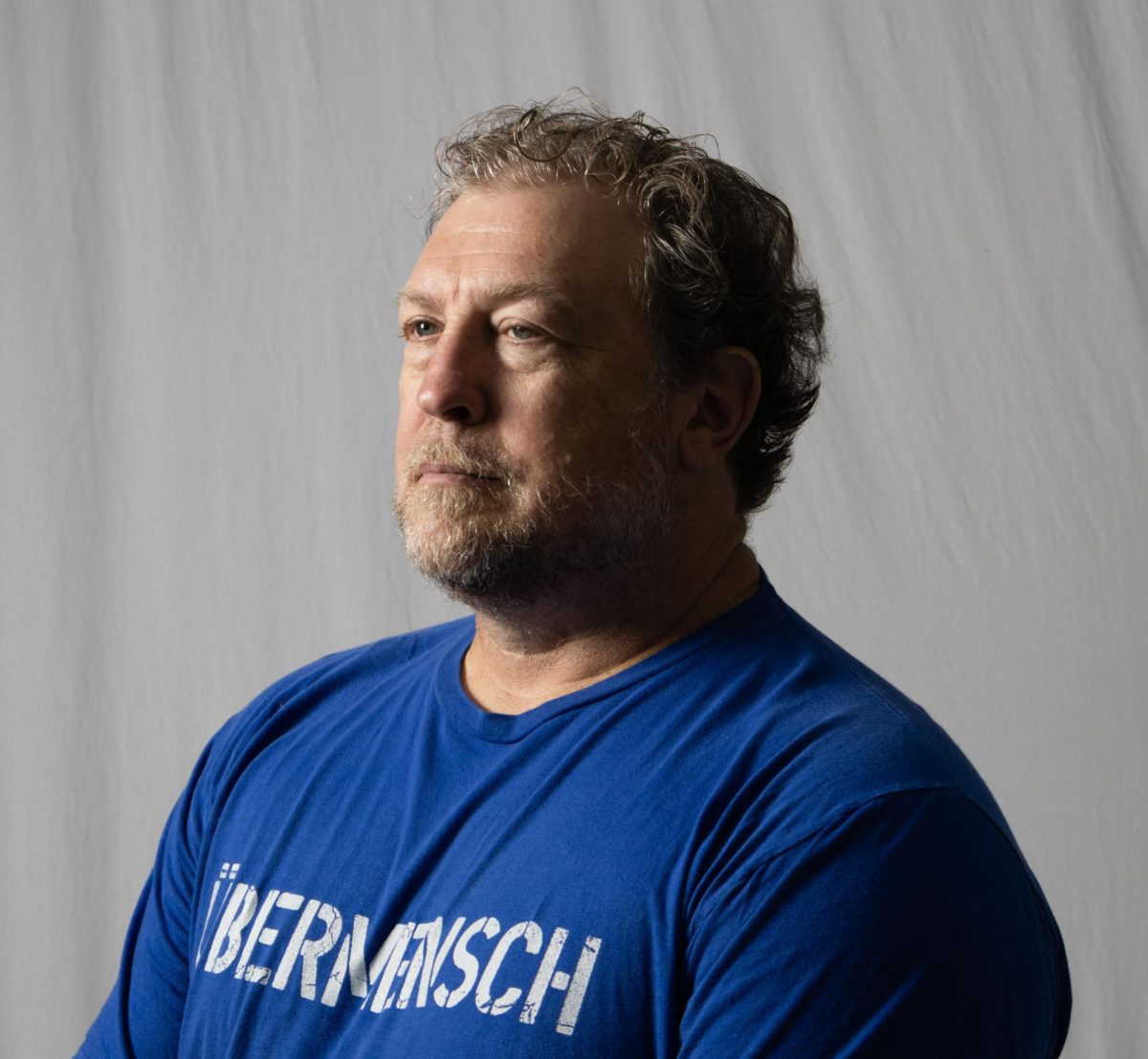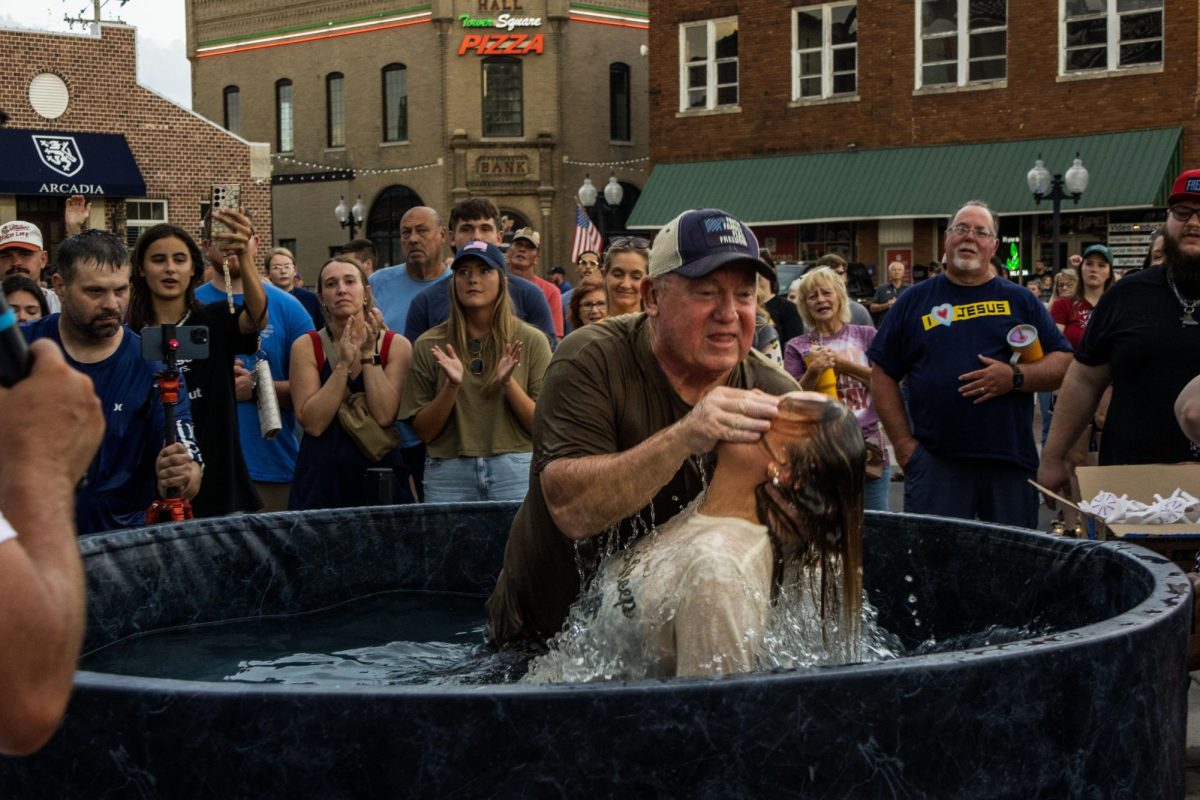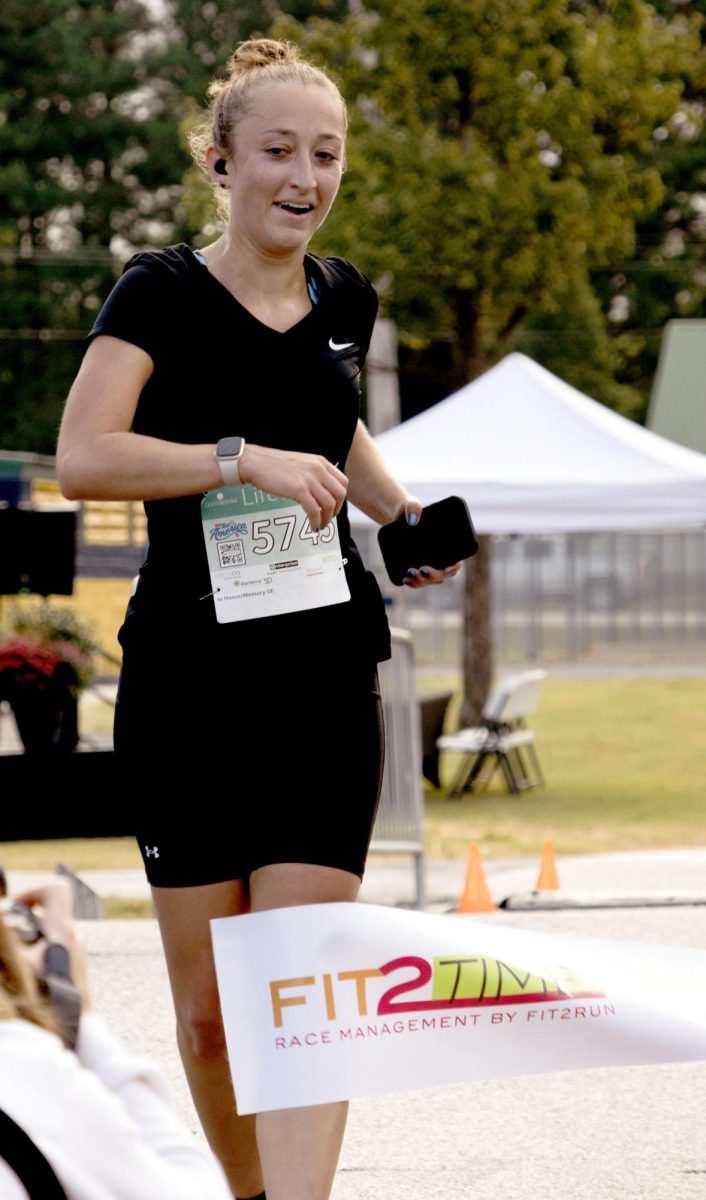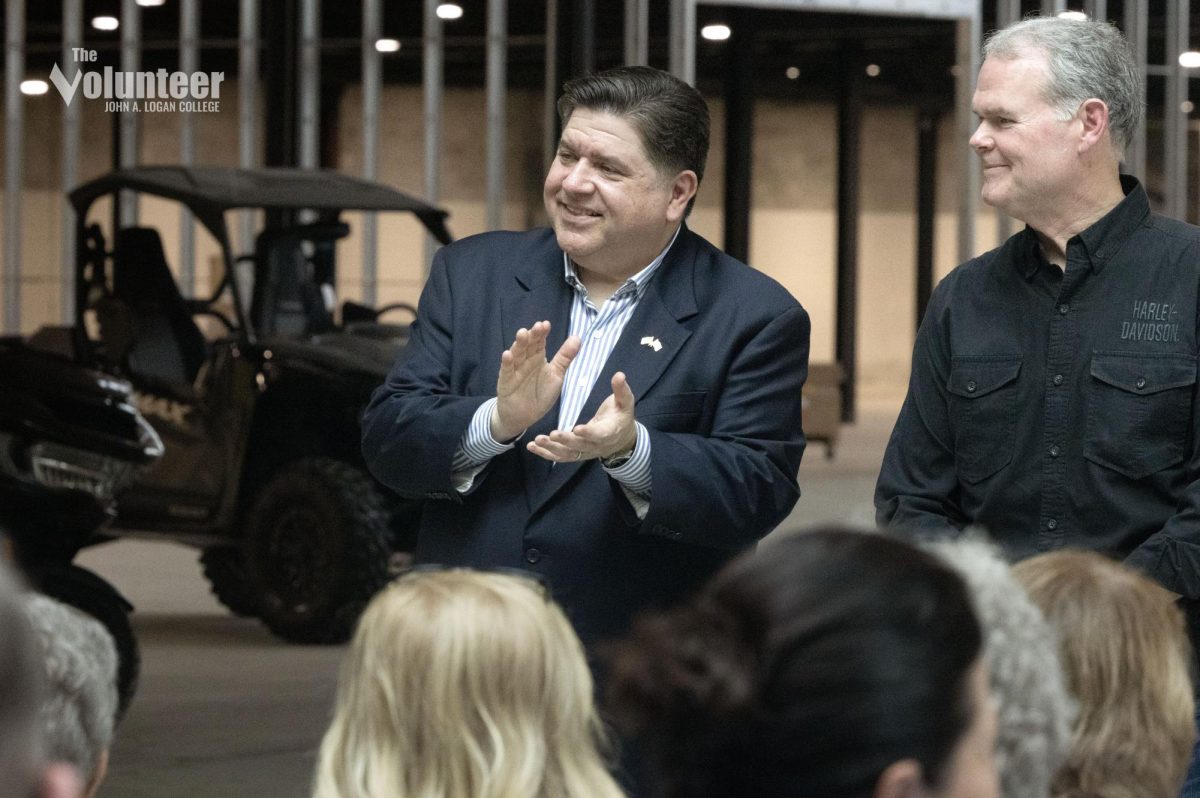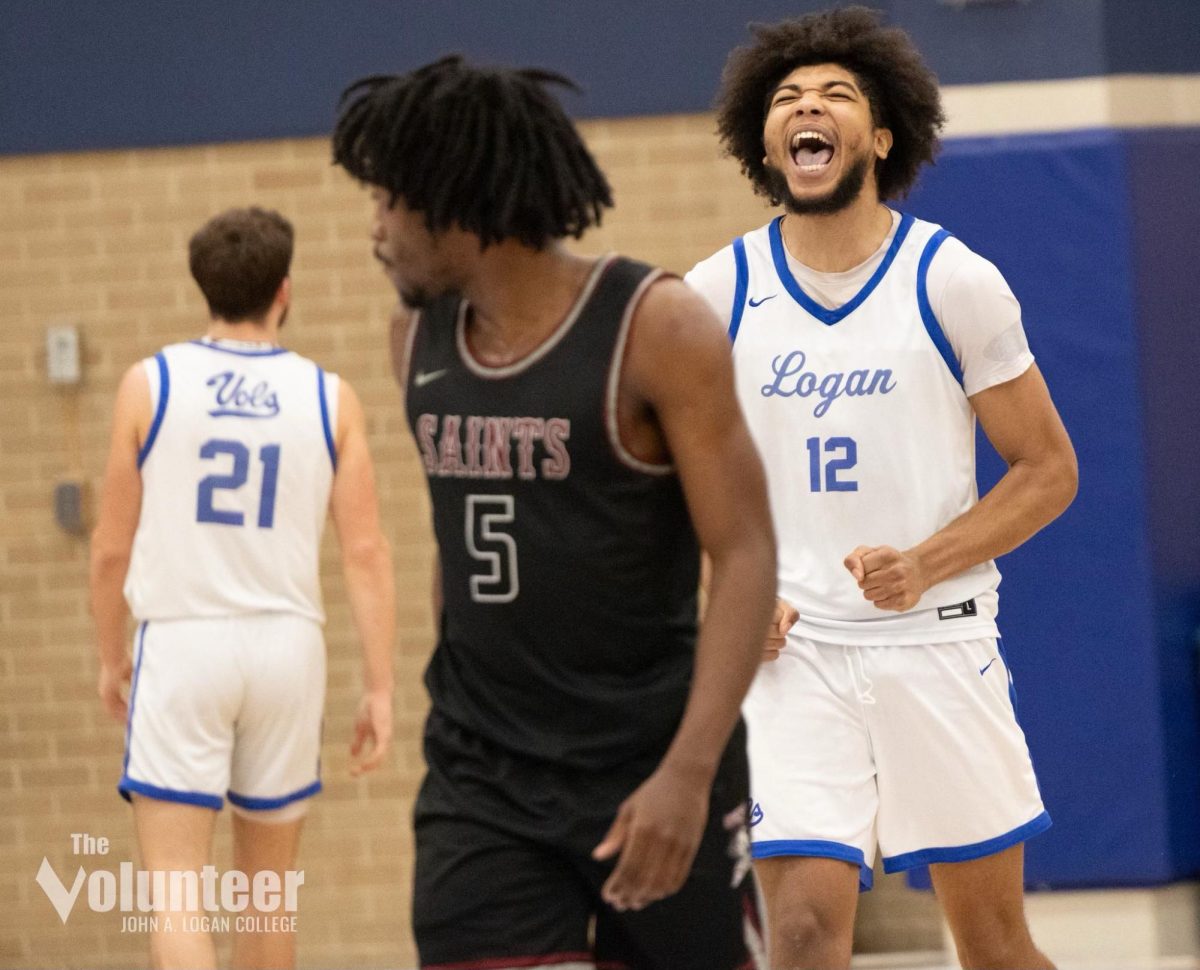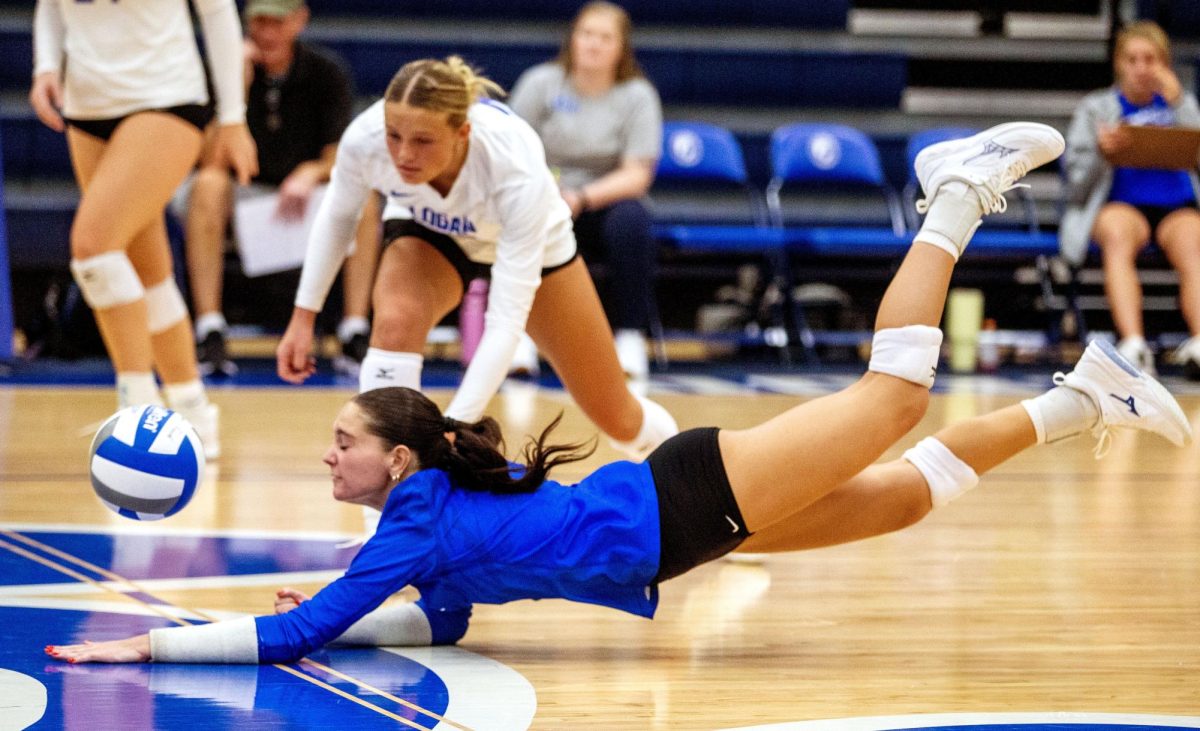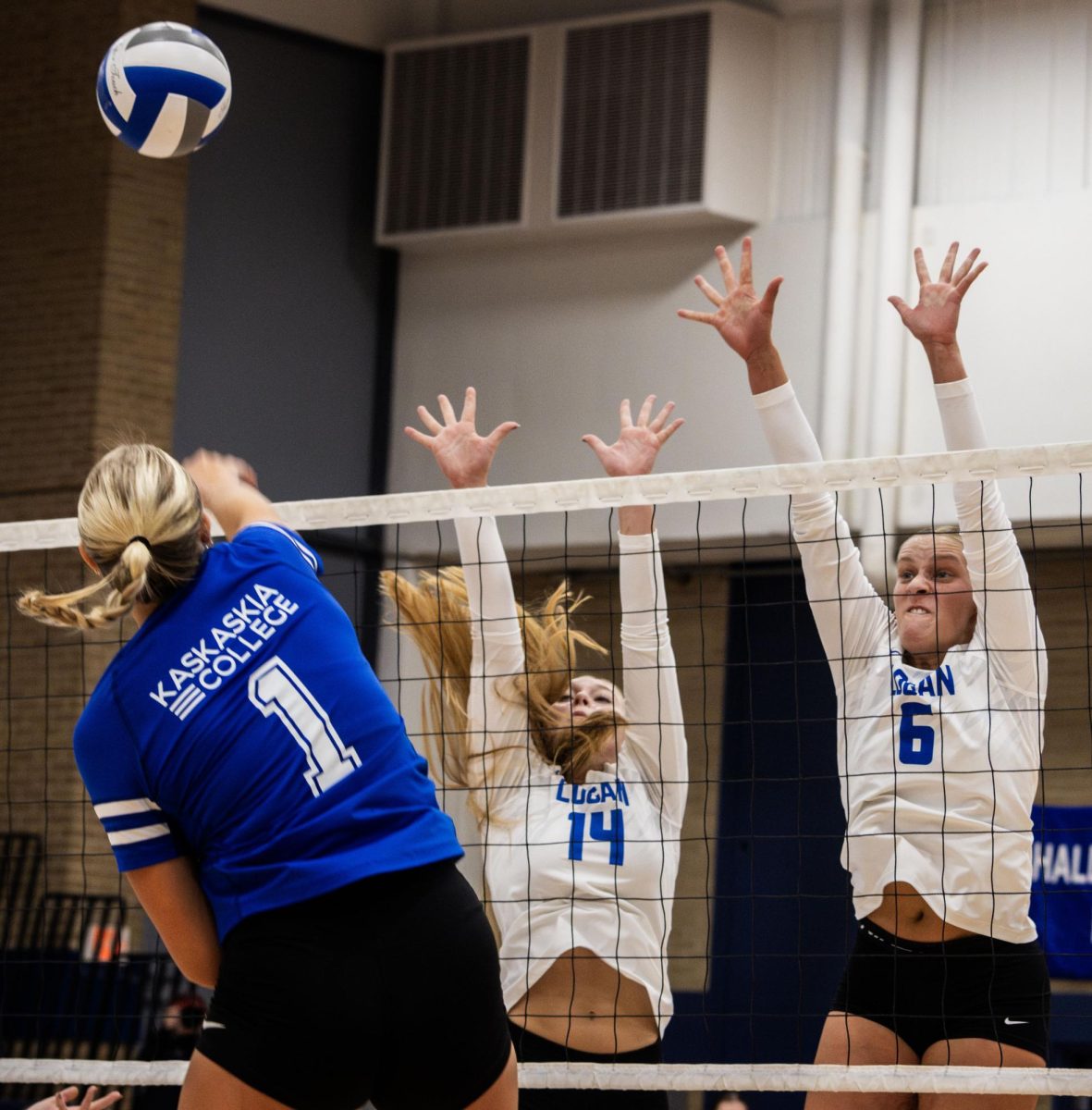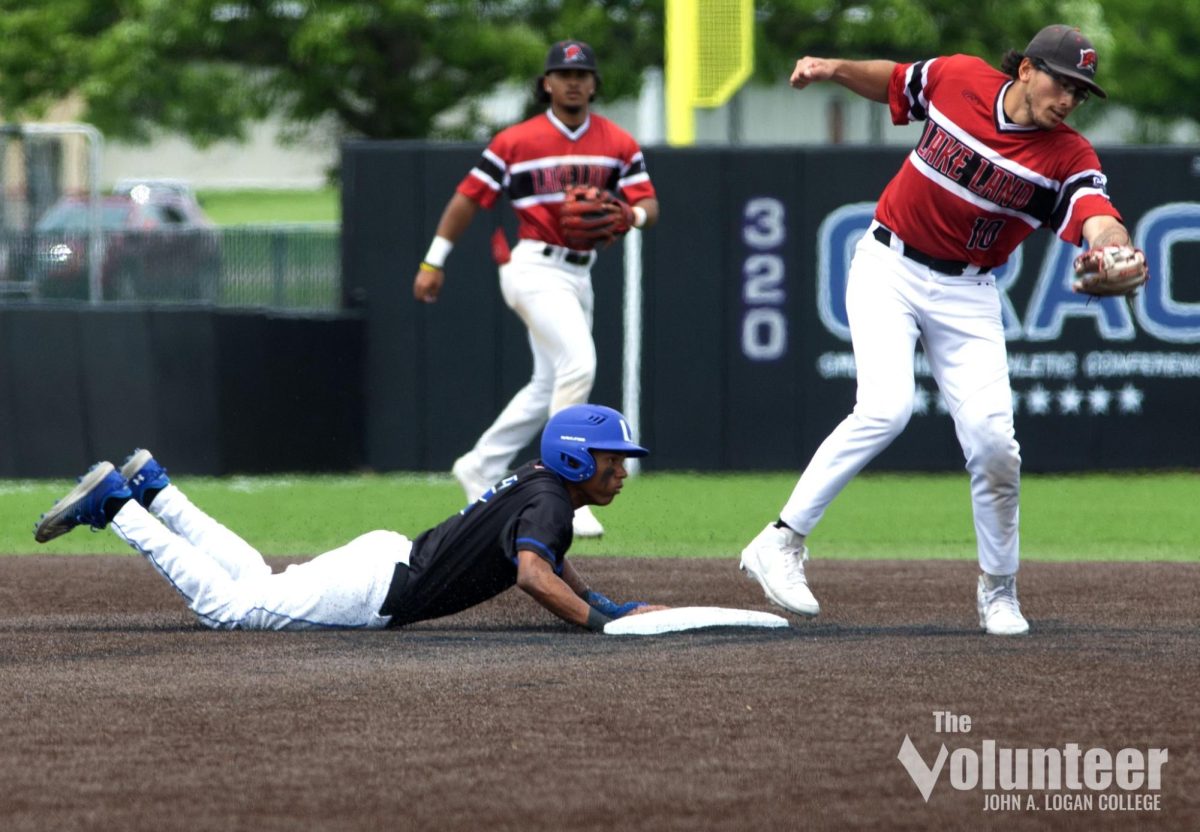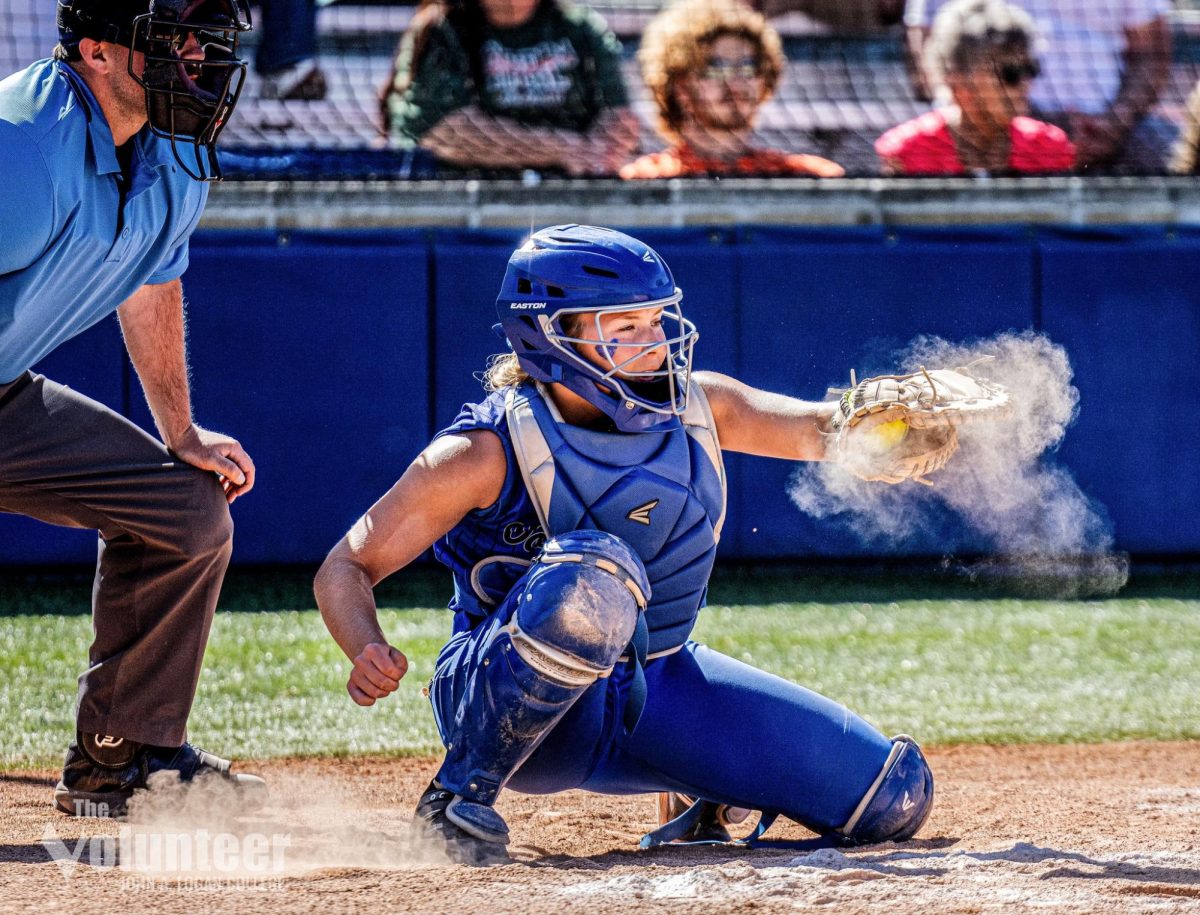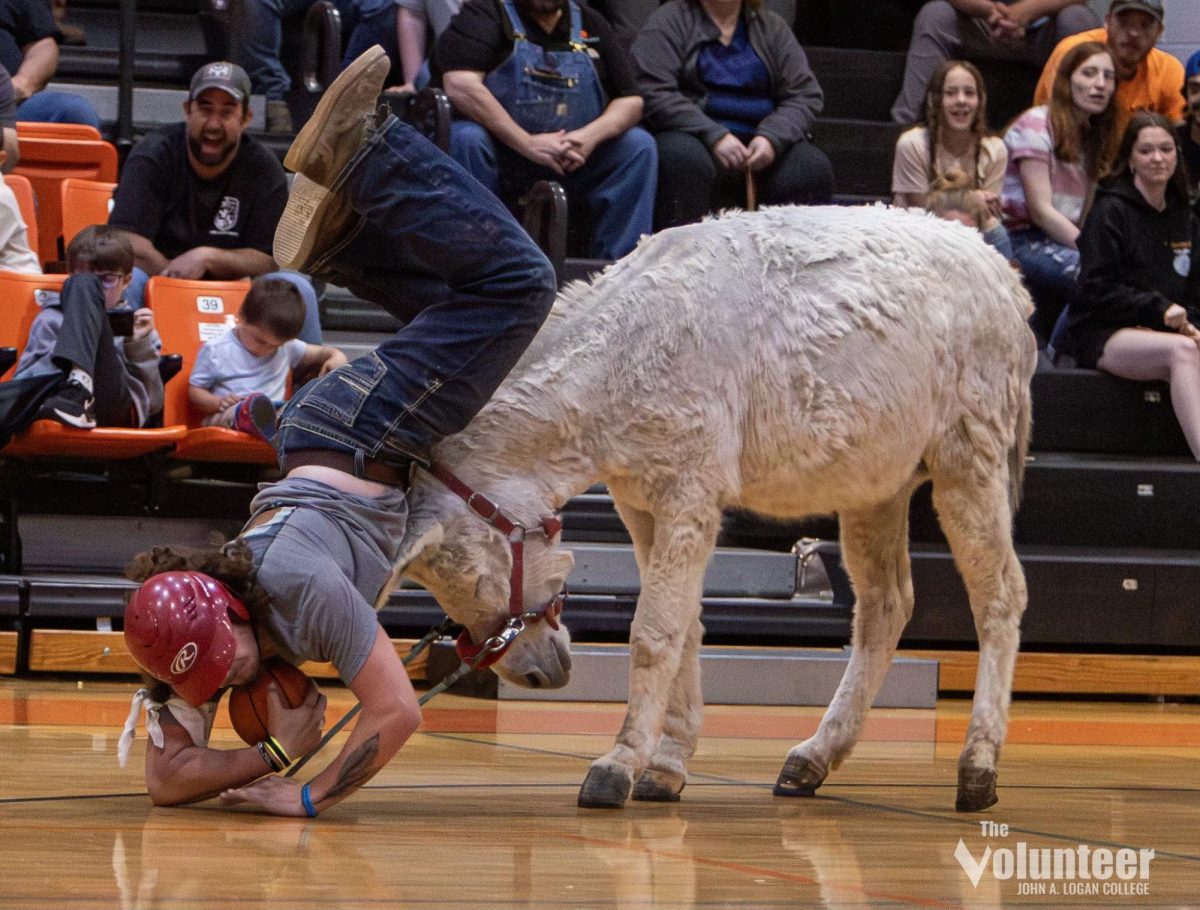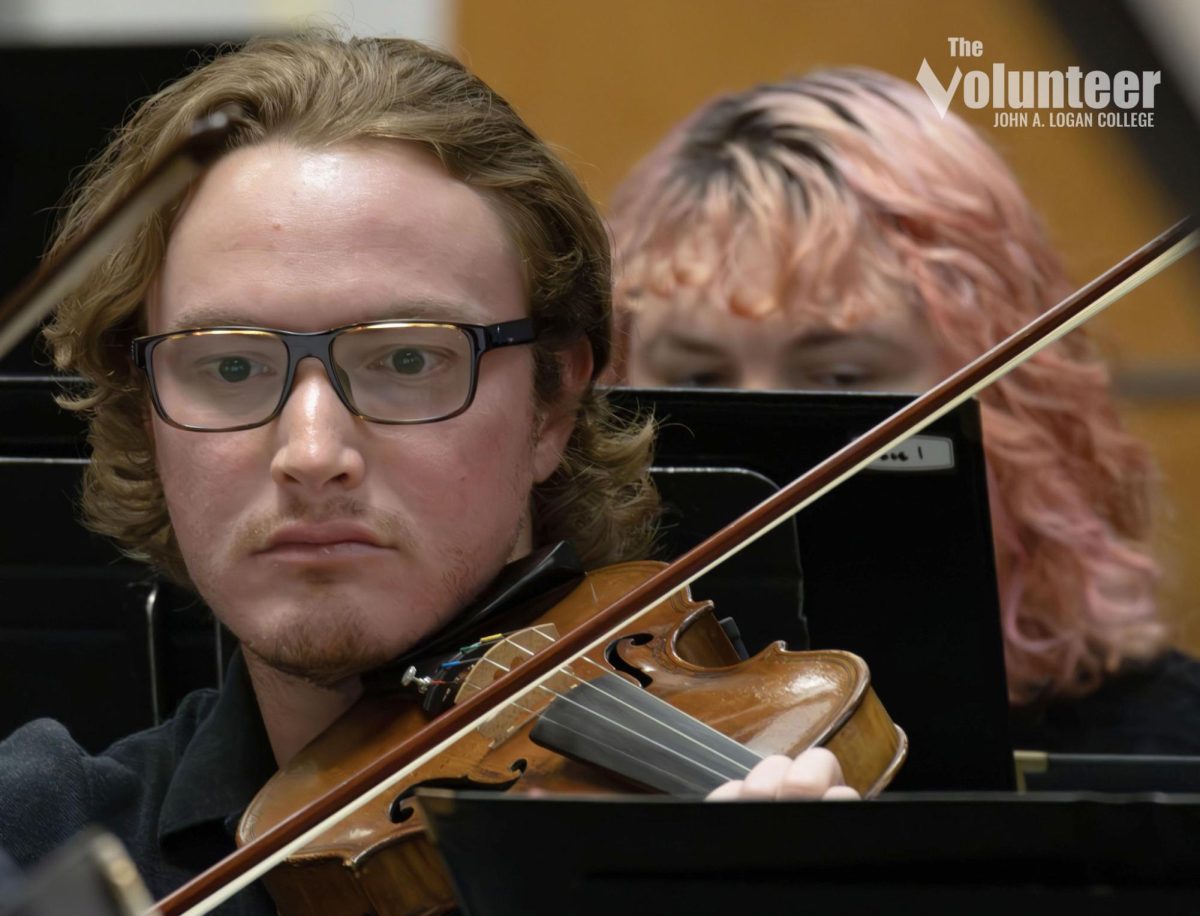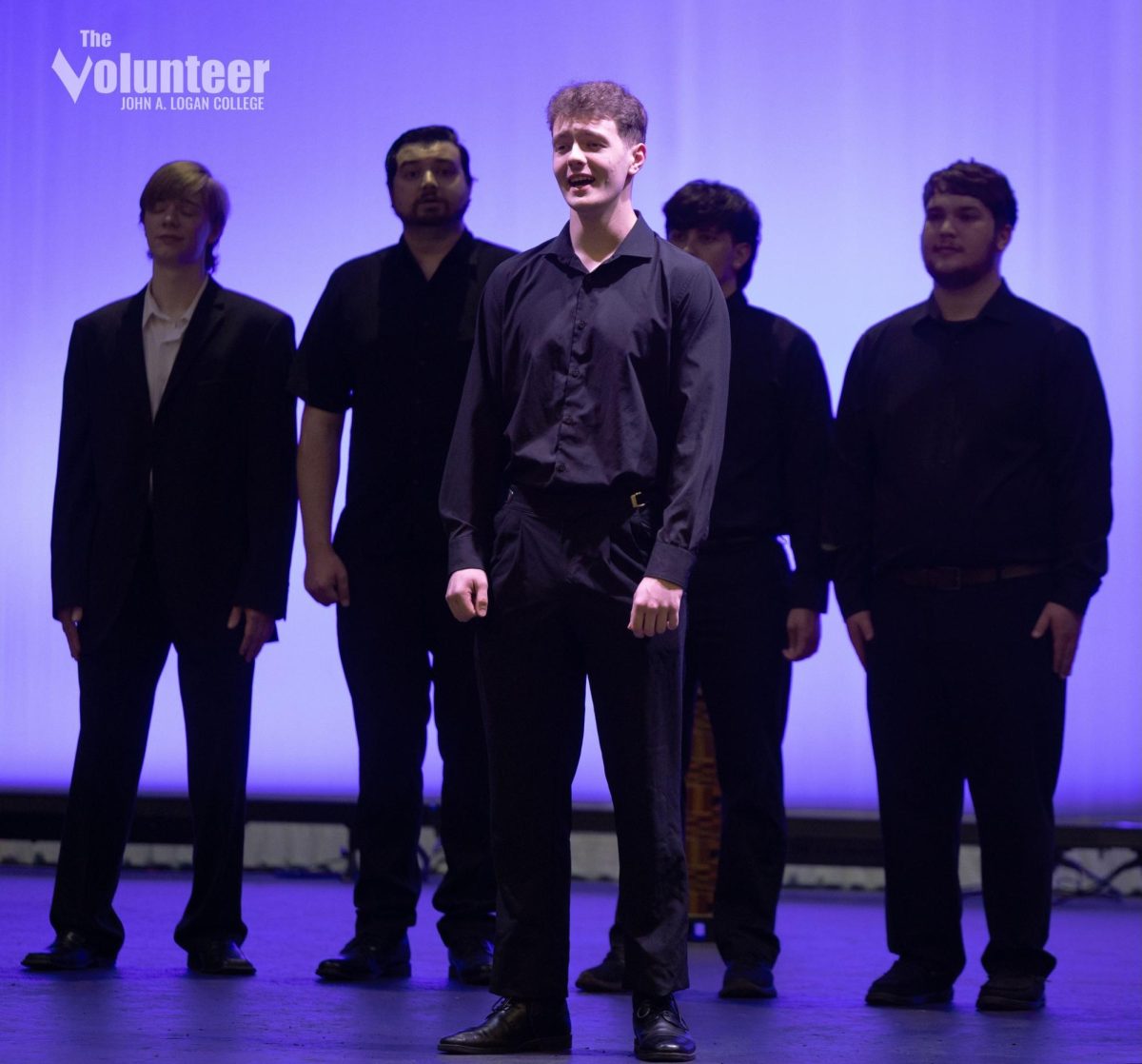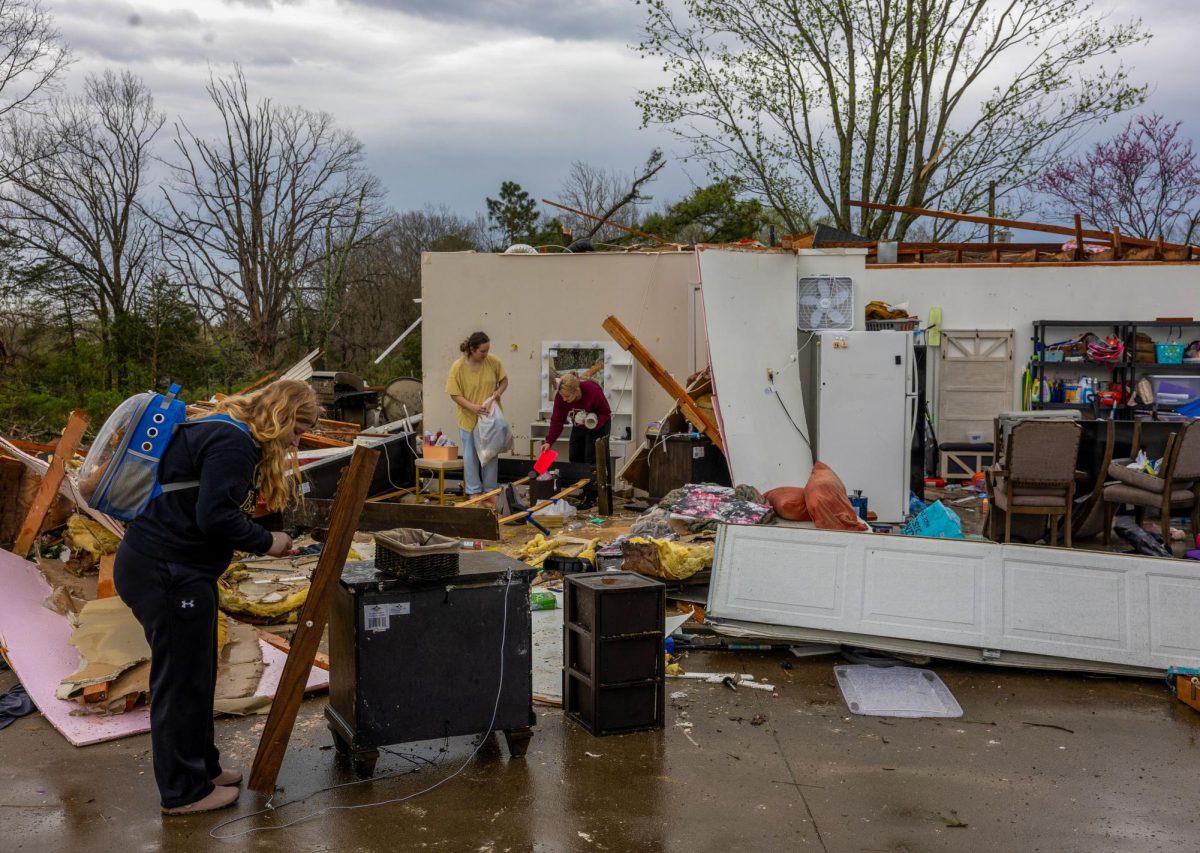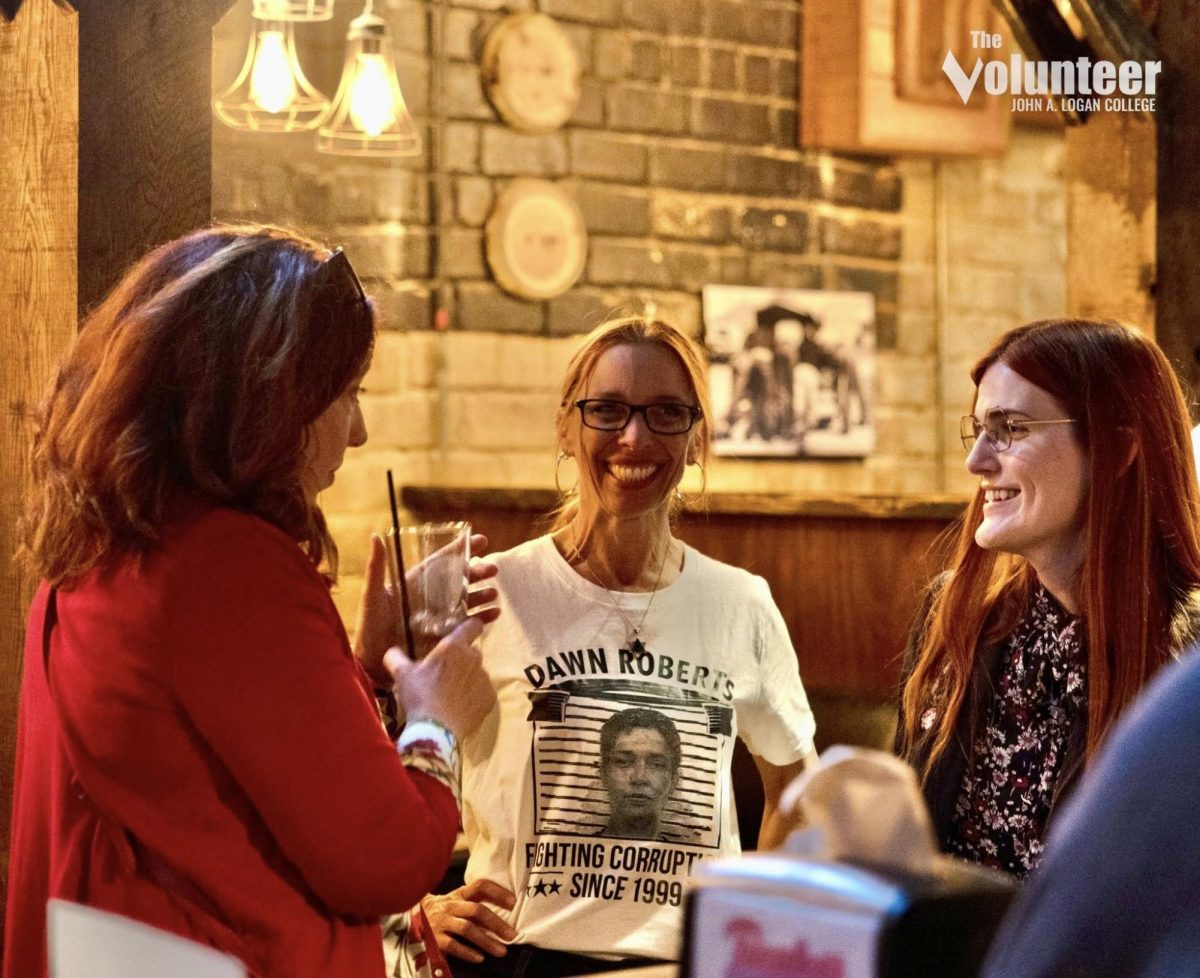Leslie Murray is an adjunct philosophy instructor at John A. Logan College and serves as president of the Association of Adjunct Faculty. Outside the classroom, Murray practices carpentry as a hobby. He earned a bachelor’s degree in philosophy from Ohio State University and a master’s degree in philosophy from Southern Illinois University Carbondale. This fall he will complete his Ph.D. in philosophy at SIU.
The Volunteer reporter Tyler Malone sat down with Murray to talk about his passion for teaching, his Ph.D. journey, carpentry and theater, and the potential impact of generative AI on education.
MALONE: All right. Hello, my name is Tyler Malone from The Volunteer. Here I will be interviewing Leslie Murray, soon to be Dr. Leslie Murray! How are you?
MURRAY: I’m doing great! How about yourself?
MALONE: Doing fabulous! So, I know that you’ve been on your journey to get your Ph.D. since 2018, and you’re going to get it this fall. How do you feel about that?
MURRAY: Oh, I feel accomplished. I feel as if it’s been a lot of work, and it’s finally gonna pay off.
MALONE: I know that a side gig of yours has been carpentry. So, what intrigues you about carpentry?
MURRAY: Well, I’ve always liked to build things and take some, you know, seemingly random pieces and create a plan and then make it all come together in a finished piece of work that would hopefully be beautiful and artistic and maybe pragmatically functional as well.
MALONE: When you were in college, wasn’t there a field that you wanted to major in before you got into philosophy or was philosophy always what you wanted to major in?
MURRAY: Philosophy was always part of the plan. Initially, I was a political science prelaw. And philosophy was always my double major, my other major, but as it turned out as time went on, the philosophy part seemed to be in all the courses that I was taking at the university. I came to understand that philosophy was actually the root of every discipline. And I really wanted to learn. I love all the topics, I like school, and I love reading and so forth. And if I really wanted to learn, understanding philosophy, in the most detailed and broadest way and having the deepest understanding, I guess would be the right way of phrasing it would be, is where I wanted to go.
MALONE: I do know that you went to Ohio State University, then you went to SIU Carbondale. So, of those two universities, which did you enjoy attending the most?
MURRAY: Oh, I would definitely say they each had their merits. But my time at SIU, I think, is irreplaceable. I developed relationships with some of my instructors, maybe partly because I came back to school much later in life, so I am more on the level of a colleague starting out. And many of the traditional students, too. So yeah, SIU would definitely be No. 1! But my time at Ohio State was irreplaceable in the things I learned there and really set me on a course that changed my life for the best.
MALONE: I can relate to SIU, as I’ve been on a lot of school trips to SIU, so I have a sense of nostalgia towards SIU. My mom is also a graduate of SIU!
MALONE: Well, are there any notable facts you would like to tell me about yourself?
MURRAY: Well, I’m on the board of the Southern Illinois Irish Fest. I’m also a member of the stage company and I’m currently in the play Frankenstein where I play Captain Walton. I love theater and the Irish Fest, and I’m also the president of the Association of Adjunct Faculty.
MURRAY: I have the desire to bring some of the things that I learned in carpentry along the way and to bear on the relationship the Association of Adjunct Faculty have with the college and how we can help it grow and make it a better community. And so how they can maybe work with us, perhaps compensate us, and treat us in better ways that are deserving of our passion. So, it’s a lot of fun, and I really enjoy teaching, and I think I learned a lot over the years being a father to six kids. I learned a lot about teaching and being patient, and the desire to be the best I could be. And I try to instill that in my own children and then hopefully the next step is to instill at least a love of learning in my students.
MALONE: I do know that you talked a little bit about how generative AI like ChatGPT is starting to become more prevalent in fields such as technology, but it’s also starting to become more prevalent in education as well. What are your full opinions on how generative AI is being used in education?
MURRAY: Well, I think we have only begun scratching the surface on how we can use it in education, because it’s a great teaching tool. And as I was saying in class, I can’t technically read all of the books, and it can. And so having that tool as an educator at my fingertips is amazing, because all of the books I have read, and all of the books I haven’t read, and kind of still compile questions that are gonna be insightful. And I think the problem we have is, you know, much greater, but it is similar to the invention of the calculator, or the personal computer, or the smartphone. You know, it’s got all kinds of pros, but it also has some drawbacks. And I would like to see work being done to eliminate these drawbacks, especially when it comes to integrating them into courses. I think that it prevents students from using it to cheat, which is what I see is one of the biggest problems with it, rather than learning. Like they’re gonna lean on ChatGPT to try to skate through, without learning anything, and still get the degree. Which is not only a disservice to that student, but it’s a disservice to the community that has an expectation of us, as educators, and expectation of that student to be qualified at whatever it is they claim they’re qualified to do. But they just let ChatGPT do it, so that opens the gateway of unfortunately to “so why do we just let ChatGPT do it anyway then?”, right? So, we have to make sure that we’re putting it in the right framework and let students know how using the tool (ChatGPT) is a benefit, but not to allow it to be a handicap.
MALONE: Is there anything else you would like to say before I wrap up this interview?
MURRAY: No, I think that’s it. Thank you!
MALONE: Yep, it’s been nice talking to you!
MURRAY: Absolutely!
MALONE: And it’s time to wrap this interview up. I hope you have a nice rest of your day!
MURRAY: I will. Thank you. You too!

